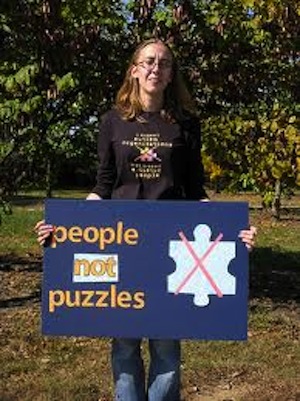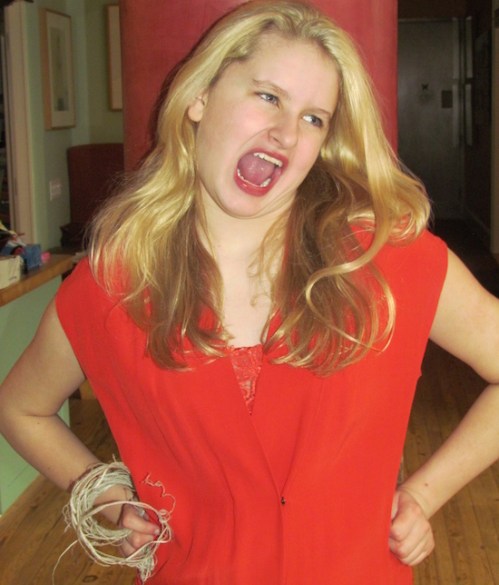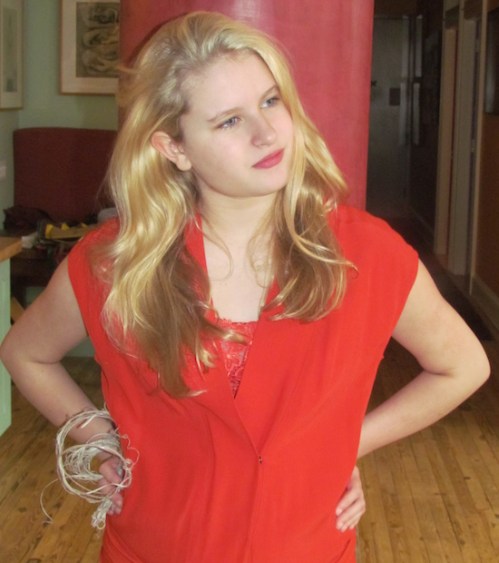Signal boosting. I love that phrase, it reminds me of a train yard. That’s the image that comes to mind when I write those two words. Signal boosting is when someone else shares a link or another’s writing either on a blog or on some other form of social media. It’s the single most appreciated and important tool, those of us who are not Autistic, can use to help amplify the words of those we support.
The other day I signal boosted a letter to the sponsors of Autism Speaks from ASAN, Autistic Self Advocacy Network, – you can read that letter ‘here‘, which outlines why they are asking sponsors to reconsider lending their support to Autism Speaks. I thought it was an excellent letter and as such, I decided to post it on my timeline on Facebook, with the heading, “For all who may be confused as to why so many are asking to boycott organizations that sponsor Autism Speaks, this is a wonderful explanation.” And that’s when the proverbial shit hit the fan. I’m not going to derail this post by going into the specifics of the comments I then received because I want to use this time to discuss Autism Speaks and why I object to what they are doing. Again ASAN’s letter is an excellent point by point summation of exactly this, but I will attempt to give my personal views and why I have come to believe as I do.
Many defenders of Autism Speaks point out all the “good” they have done and continue to do. They highlight insurance reform, their 100 day tool kit, autism awareness, spending millions of dollars on research, etc and yet, even if every single thing people who support Autism Speaks believe they are doing that is positive and helpful to Autistic people were true, (which I, for one, do not believe) it still does not take away from the fact that Autism Speaks does a great deal that hurts Autistic people and my child. Autism Speaks uses its power and massive reach to shape how the public views autism and autistic people. Suzanne Wright’s A Call for Action is a good example of this. She begins with –
“This week is the week America will fully wake up to the autism crisis.
If three million children in America one day went missing – what would we as a country do?”
“Went missing” furthers the misconception that our autistic children were once here, and now are gone. This idea is not helpful to anyone, least of all the parents who are new to a diagnosis and their young children. Nothing positive, absolutely nothing positive comes from this kind of language, in fact this is exactly the sort of thinking that had my husband and I pursuing all kinds of “cures” not so long ago. It was this thinking, that my daughter was buried beneath “autism” and that if I could just find a way to release her from its tortured grip, I would have done the noble thing, the right thing for my daughter. As painful as it all was, as terrified as we were, she would thank us later… this was my thinking.
And yet, none of this helped me find ways to help her communicate. Once we found a way to help her write and find her “voice” that was when the real miracles began to happen. Helping my daughter communicate is what she is thanking us for now, not all those so-called “cures” we traumatized her with. And please know, I mean that word, “traumatized” literally. You can read more about some of that trauma ‘here‘, ‘here‘ and ‘here‘.
Suzanne Wright continues with increasingly alarmist, even threatening language.
“And, what about their parents? How much can we ask them to handle? How long will it be before the exhaustion makes them ill? How long before they break?
“How long before they break?” Given that several parents have recently attempted and some have succeeded in killing their Autistic children, this language is particularly repugnant. This is not a call for action, it is a call for fear. It sets autism up as something to go to war against. It dismisses the horror of these crimes against their own children as something that is practically inevitable. It suggests that autism is the reason people would go to such extremes, but nowhere does Autism Speaks suggest it is the public perception, a perception they have had a massive hand in creating, that makes the lives of families and our Autistic children more difficult and yet I can tell you, it does. What they are doing, what they are saying is making my daughter’s life harder, not easier.
Those horrible ads (ransom notes) they posted all over New York City in 2007 and then took down because of the public outcry, the videos of parents who speak about their children, while their child is right there, but because their child does not speak it is assumed they cannot understand what others are saying… these are the things people believe, but that I have learned from my non-speaking Autistic friends and my daughter are simply not true. My daughter understands everything that is said around her and she is not alone. So many who do not speak have written about this, Ido, Naoki, Amy, Nick, Joey, Barb, Carly, Tito… too many to ignore or to dismiss as an anomaly.
In one video Autism Speaks produced a few years ago, the mother describes how she thinks about driving off the George Washington Bridge with her Autistic daughter in the back seat, the same daughter who goes over, numerous times, as her mother talks to the camera, to hug her. This video continues to haunt me. I no longer believe that child did not understand what her mother was saying. My daughter understood everything we said in front of her, even though at the time she gave no indication she did. I now know differently. What must it have been like to be that child, to hear your mother saying to a camera crew that she thinks about killing herself and you and that the only reason she does not is because of her other non autistic child? What would that be like to be that child?
These ad campaigns, these videos, these words, these “calls” for action DO have a huge impact on what people then think about autism, about Autistic people, about my daughter. People make assumptions about my daughter’s intellectual capabilities all the time. If you are curious to read some of what my daughter is writing these days, please click ‘here‘, ‘here‘ and ‘here‘. None of what she is writing is thanks to anything Autism Speaks has done. Autism Speaks absolutely impacts my daughter’s life, and they aren’t doing her any favors.
In the end, it doesn’t matter what good Autism Speaks has accomplished, until they really understand why so many are so angry, as long as they continue to not include Autistic people in any position of power, they will continue to be attacked by the very people they claim to represent. How long will it take? What will need to happen before Autism Speaks stops talking and LISTENS to those it keeps insisting it represents. So many Autistic people are furious. And so am I. All their power, resources, money could be used to do so much good for Autistic people, they could make such a difference in the lives of so many…
I stand beside my Autistic brothers and sisters and I will signal boost their words at every opportunity I get until they are able to take the microphone away from Autism Speaks and people begin to hear their voices. Their voices are what the public needs to hear, NOT Autism Speaks.
Image of Melanie Yergeau with a sign of a red X over a puzzle piece. To the left of the image are the words “people not puzzles”


















